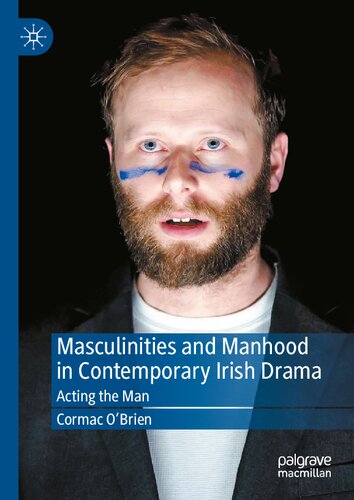

Most ebook files are in PDF format, so you can easily read them using various software such as Foxit Reader or directly on the Google Chrome browser.
Some ebook files are released by publishers in other formats such as .awz, .mobi, .epub, .fb2, etc. You may need to install specific software to read these formats on mobile/PC, such as Calibre.
Please read the tutorial at this link: https://ebookbell.com/faq
We offer FREE conversion to the popular formats you request; however, this may take some time. Therefore, right after payment, please email us, and we will try to provide the service as quickly as possible.
For some exceptional file formats or broken links (if any), please refrain from opening any disputes. Instead, email us first, and we will try to assist within a maximum of 6 hours.
EbookBell Team

5.0
20 reviewsThis book charts the journey, in terms of both stasis and change, that masculinities and manhood have made in Irish drama, and by extension in the broader culture and society, from the 1960s to the present. Examining a diverse corpus of drama and theatre events, both mainstream and on the fringe, this study critically elaborates a seismic shift in Irish masculinities. This book argues, then, that Irish manhood has shifted from embodying and enacting post-colonial concerns of nationalism and national identity, to performing models of masculinity that are driven and moulded by the political and cultural practices of neoliberal capitalism. Masculinities and Manhood in Contemporary Irish Drama charts this shift through chapters on performing masculinity in plays set in both the Irish Republic and Northern Ireland, and through several chapters that focus on Women’s and Queer drama. It thus takes its readers on a journey: a journey that begins with an overtly patriarchal, nationalist manhood that often made direct comment on the state of the nation, and ultimately arrives at several arguably regressive forms of globalised masculinity, which are couched in misaligned notions of individualism and free-choice and that frequently perceive themselves as being in crisis.